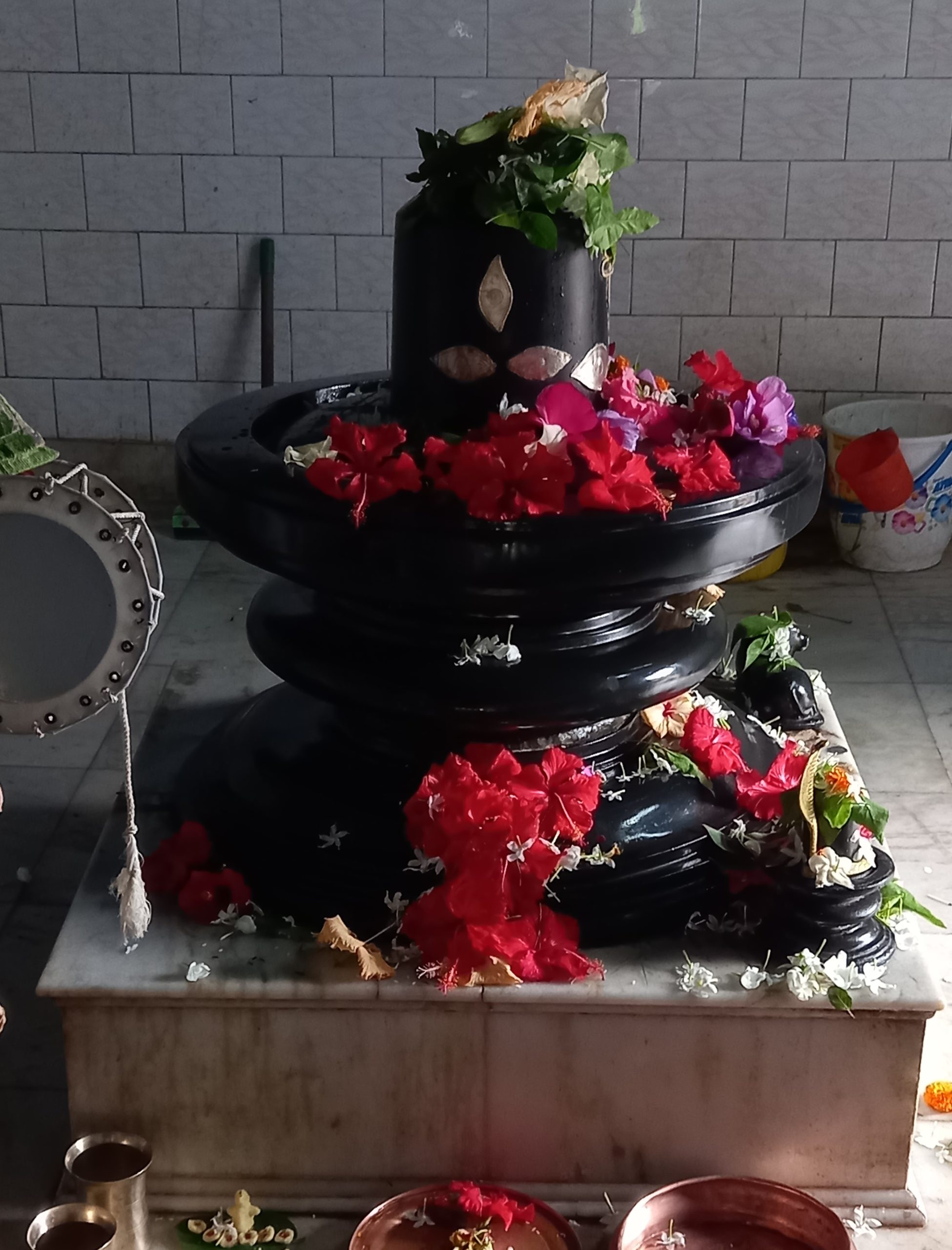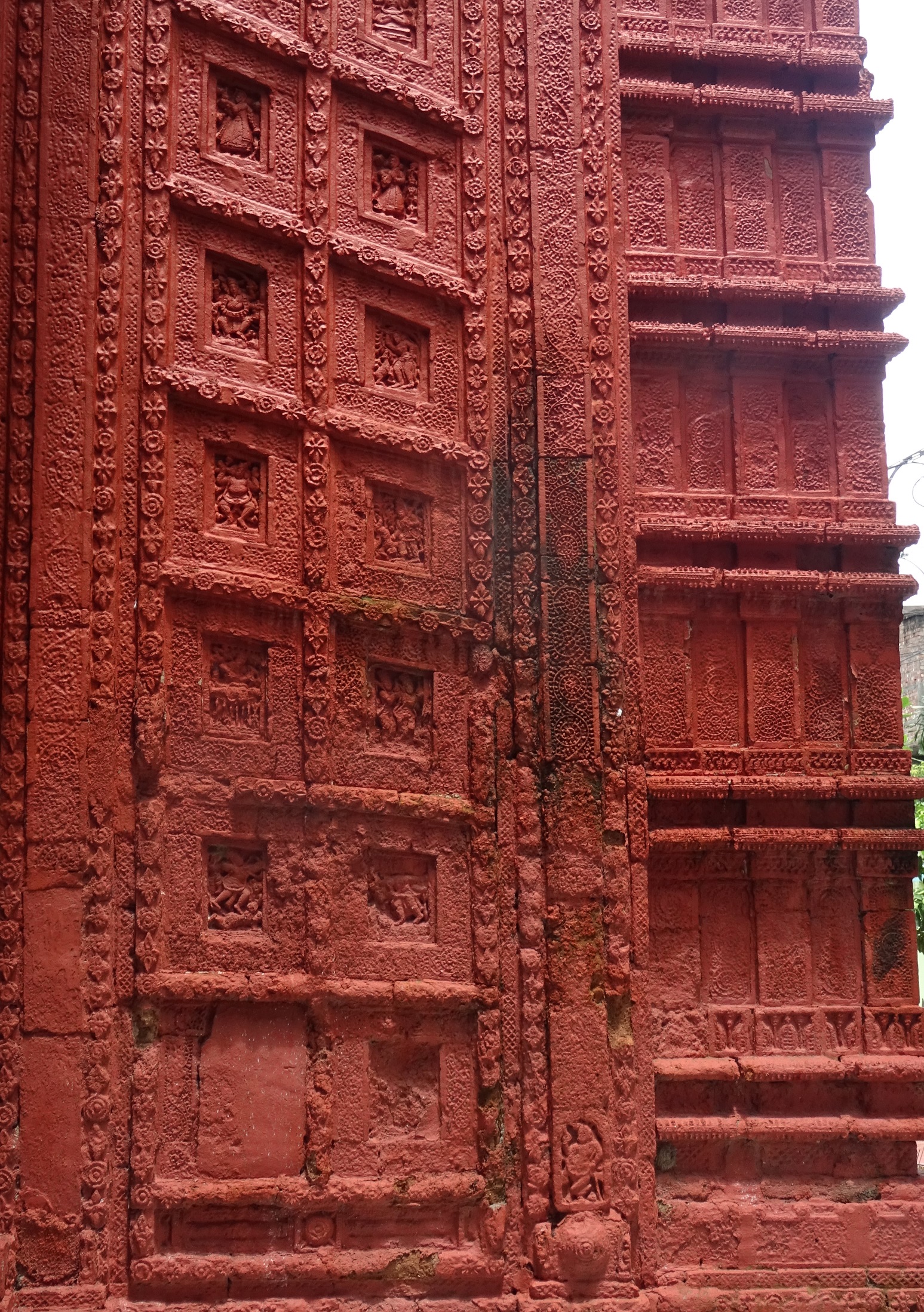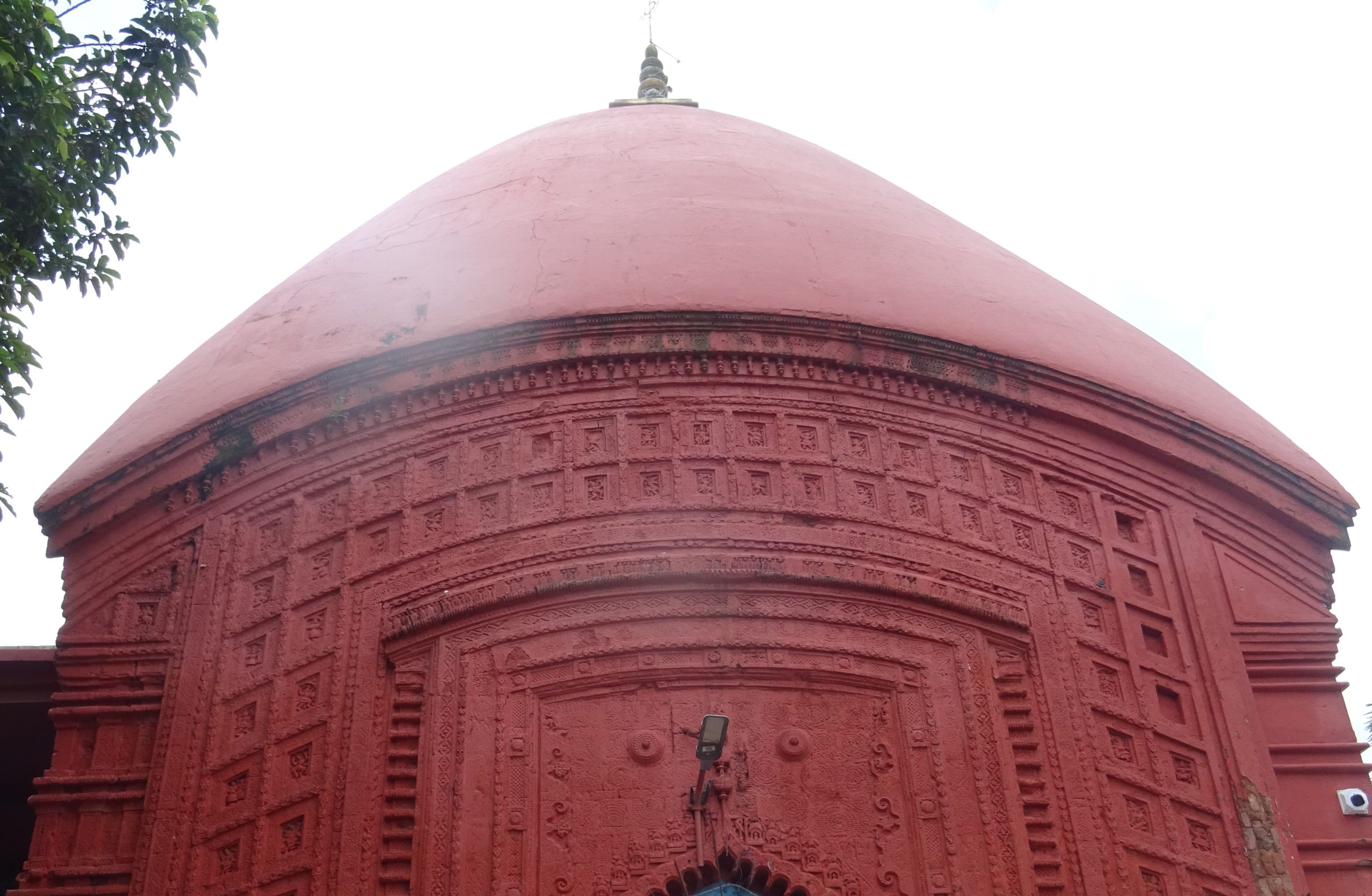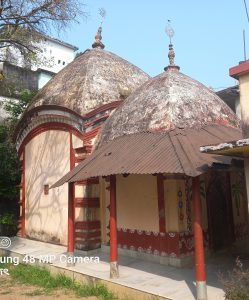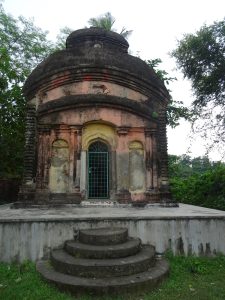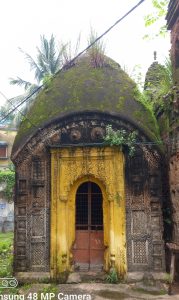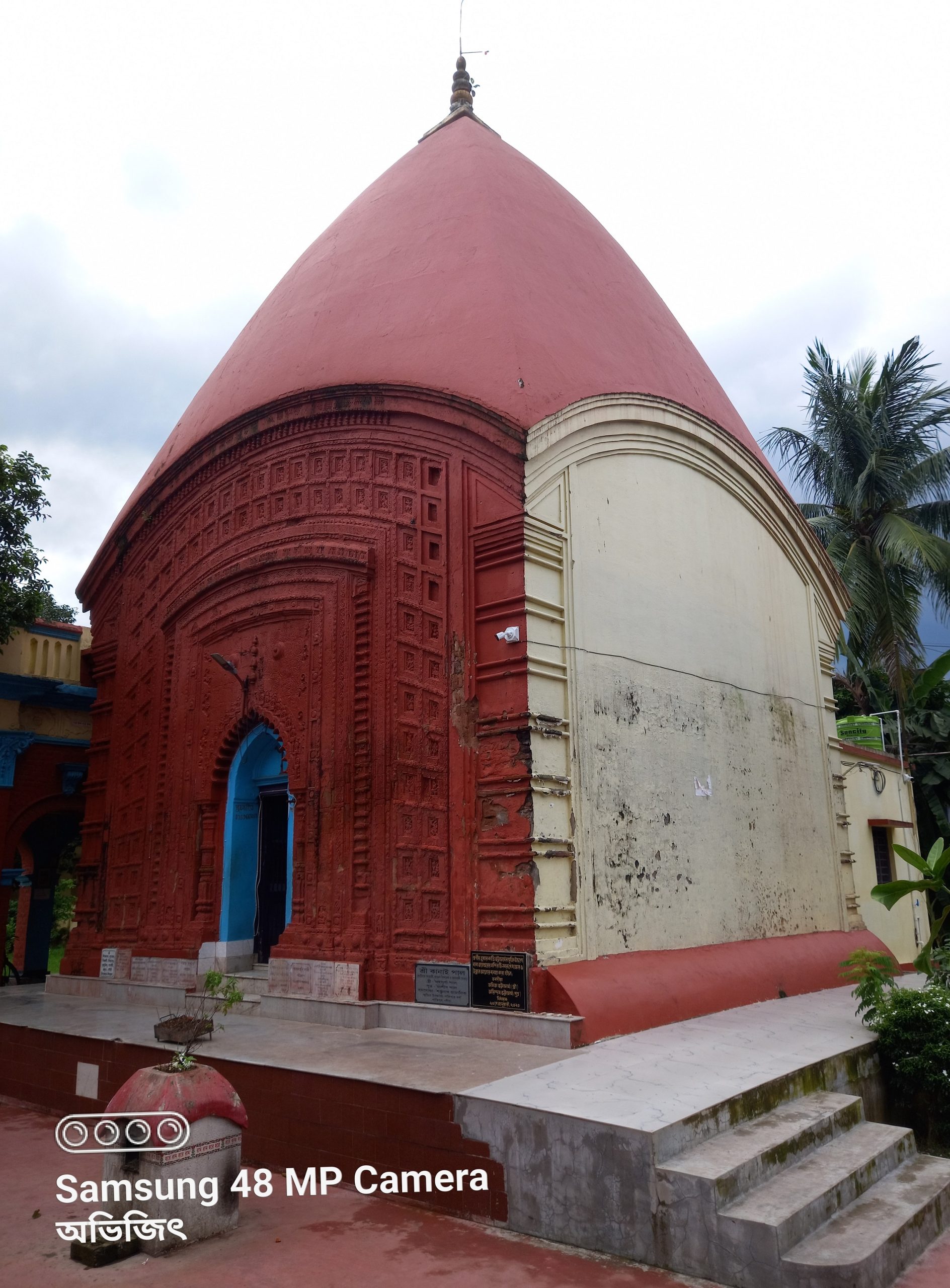
প্রখ্যাত বৈষ্ণব তীর্থ শান্তিপুর অত্যন্ত পুরাকীর্তি সমৃদ্ধ স্থান। এখানে তিলি পাড়ায় জলেশ্বর মন্দিরটি পুরাকীর্তর এক অনন্য নিদর্শন। প্রতিষ্ঠা লিপির অভাবে পারিপার্শ্বিকতার বিচারে গুণীজনের মতে আঠারো শতকের প্রথম দিকে নদীয়ার রাজা রুদ্র রায়ের ছোট পুত্র রামকৃষ্ণের মাতা দেবী এটি প্রতিষ্ঠা করেন। সে সময় শিবলিঙ্গটির নাম ছিল রুদ্রকান্ত।
কথিত আছে একবার অনাবৃষ্টির সময় বিজয় কৃষ্ণ গোস্বামী বৃষ্টি যাতে আসে সে কারণে শিবের মাথায় প্রচুর গঙ্গা জল ঢেলেছিলেন এবং বৃষ্টি এসেছিল। তখন থেকে শিবের নাম হয় জলেশ্বর।
মন্দিরের ভেতরে প্রায় তিন ফুট উঁচু কোষ্ঠী পাথরের একটি বড় শিবলিঙ্গ আছে। গর্ভ গৃহের কুলুঙ্গিতে কোন মূর্তি দেখতে পাইনি।
দক্ষিণ মুখী মন্দিরের সামনের দিকে প্রচুর টেরাকোটা অলংকরণ আছে এবং পূর্ব দিকের দেওয়ালেও বেশ কিছু টেরাকোটা অলংকরণ আছে।
বিভিন্ন সময় সংস্কারের ফলে রঙের প্রলেপ পরে টেরাকোটার ঐতিহ্য তার মাধুর্য হারিয়েছে।
৪৫ ফুট উঁচু চারচালা এই মন্দিরটি একসময় যে অপরূপ টেরাকোটা ঐতিহ্য যুক্ত স্থাপত্য ছিল তা বেশ বোঝা যায়।
The famous Vaishnava pilgrimage site of Shantipur is a place rich in ancient history. The Jaleswar temple in Tili Para here is a unique example of ancient history. In the absence of a foundation inscription, experts believe that it was founded by the mother of Ramakrishna, the younger son of King Rudra Roy of Nadia, in the early 18th century. At that time, the name of the Shivalinga was Rudrakanta.
It is said that once during a drought, Vijay Krishna Goswami poured a lot of Ganga water on Shiva's head to bring rain and the rain came. Since then, Shiva has been called Jaleswar.
Inside the temple there is a large stone Shivalinga about three feet high. I did not see any idol in the niche of the sanctum sanctorum.
The south-facing temple has a lot of terracotta decorations on the front and some terracotta decorations on the eastern wall. Due to various renovations, the terracotta tradition has lost its charm after being coated with paint.
It is quite understandable that this 45-foot-high 'char chala'
temple was once a unique terracotta tradition-rich architecture.

